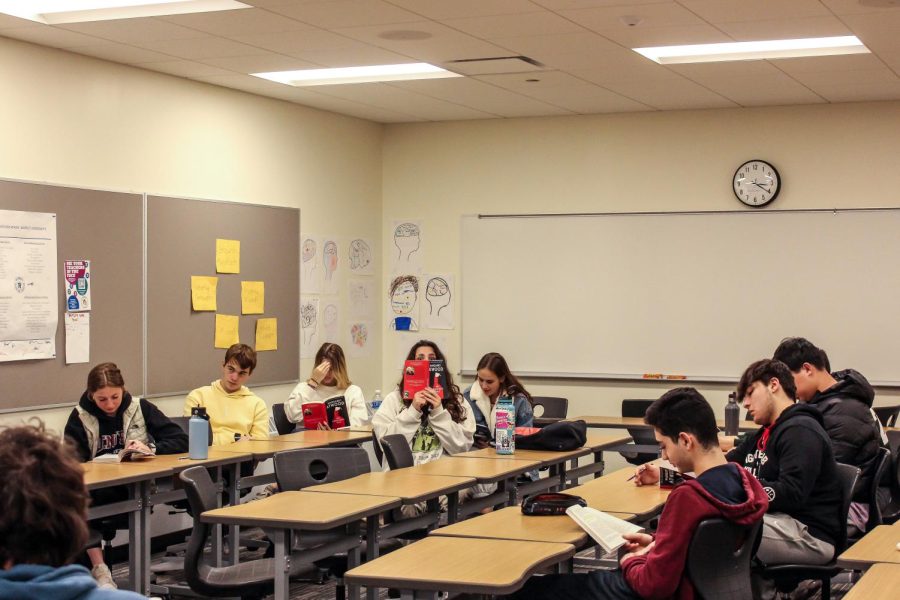English Dept. limits offerings for ’24
Senior English classes will have less options due to class and level merges
Meyer
2024 senior English classes will be limited to Literature and Film, Cultural Crossroads, Literature and Psych, Senior Writers and Creative Writing
The English department has created a total of six English class options for next year’s senior class, narrowing English courses from two, three, four and nine levels to just 9 and 4 levels.
The department has been working on this change for three years in an attempt to help students with college preparation and to reduce scheduling inconveniences.
While most staff members apparently support this change, some students say they are skeptical that some students can handle the level difference.
Some students who have taken a 2 level English in their first three years of high school worry they will be forced to jump up a level that they are not ready for.
“I think a student who has been in level 2 classes their entire career is used to that and should continue at that level in order for them to excel at the appropriate rate, feel confident, and do well in that class,” said junior Charles Wise.
English Department Chair Edward Zwirner said teachers will use the process of differentiation to ensure students of all levels feel comfortable in their class.
“Teachers will differentiate on the content of the course, allowing students to choose what they read about. You differentiate on assessment, giving them different ways of assessing their learning. You differentiate on the pace and structure of their learning to help students work through a challenging project or concept. And lastly, you really look at how the classroom environment is supportive of different types of people who come in.”
Zwirner added that in the past, many students faced scheduling issues due to the abundance of class options, and combining classes will allow for more flexibility.
“If you were thinking of registering for a 2 level class, you had far fewer choices, and so rather than create more choices in a 2 level,” he said, “it made more sense to open up these courses for anyone to register.”
Zwirner emphasized that this change in course options was for the benefit of the students. After studying these issues for the past several years, the English Department believed that inclusivity would help, rather than take away from former 2 level students.
“Most students when they go to college are going to be in unleveled environments, and so the division between these levels becomes a lot less important as you get older,” Zwirner said.
While some current juniors are hesitant to trust the new system, there is a widespread sense of anticipation, both positive and negative, among teachers.
English teacher Dan Licata said, “There’s more exploration. It’s fun to do that, but at the same time, it is a little more nerve racking. New material is always intense to learn before you walk into a class.”
However the reason Licata believes all teachers will overcome these initial challenges is because of the existing similarities in curriculums.
The new class, Cultural Crossroads, for example, will be a combination of what is now Good & Evil, Humanities, and Myth & Mind.
Licata plans on teaching Cultural Crossroads next year and explains that the process of mixing these three classes will be easier than expected.
“We discovered in the summer that we were saying a lot of ‘Oh you do this? So do I!’, so it’s a natural combination,” Licata said.
The overarching goal in mixing levels is to better prepare students for the real world.
Zwirner said he looks forward to seeing how students embrace the new courses and how teachers will be able to improve the system.
“We did our study of this years ago with students and looked at how students were taking their courses, what they were interested in, and what they told us. We plan to keep doing that and studying this as we go,” Zwirner said.







































